Find Help
More Items From Ergsy search
-
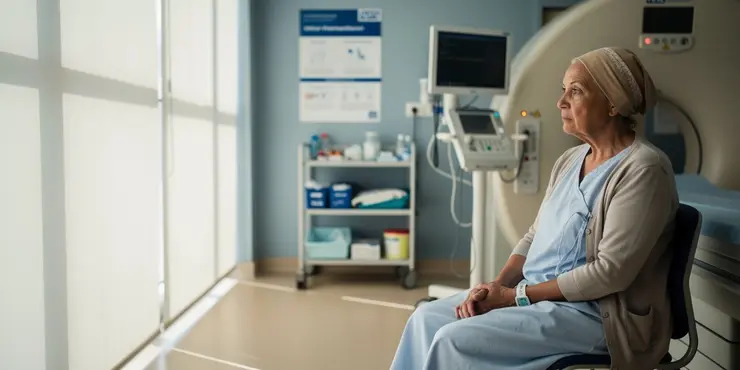
Having radiotherapy for breast cancer - 3 Videos
Relevance: 100%
-
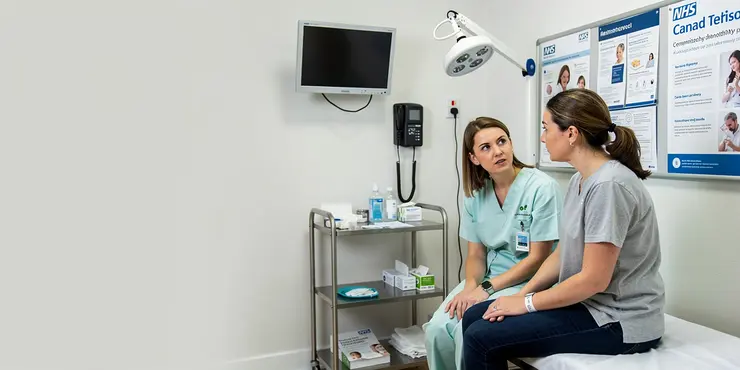
What is Radiotherapy, and its use in treatment for cancers?
Relevance: 97%
-
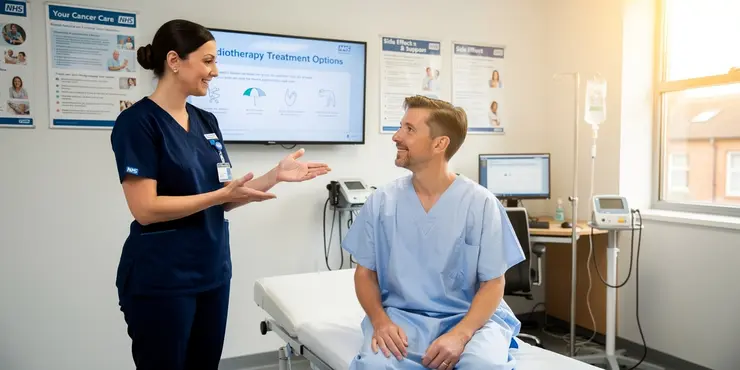
Royal Berkshire NHS Foundation Trust: Radiotherapy for prostate cancer
Relevance: 92%
-
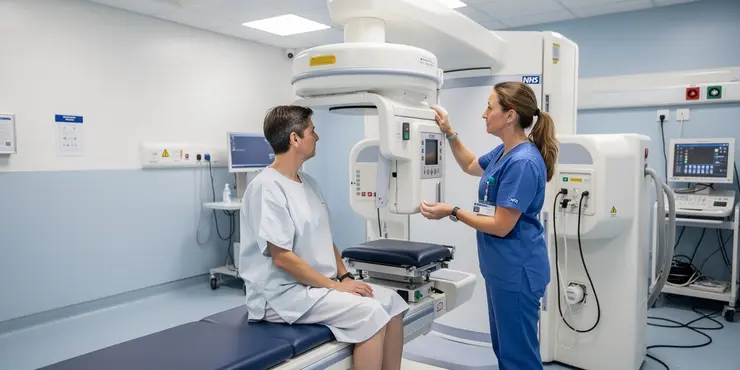
Cancer treatment: what happens during radiotherapy? | NHS
Relevance: 92%
-

Royal Berkshire NHS Foundation Trust: Radiotherapy for head and neck cancers
Relevance: 87%
-
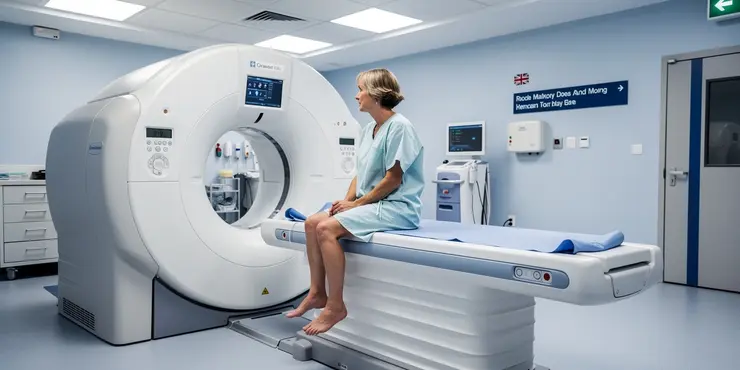
Radiotherapy CT scanner
Relevance: 80%
-
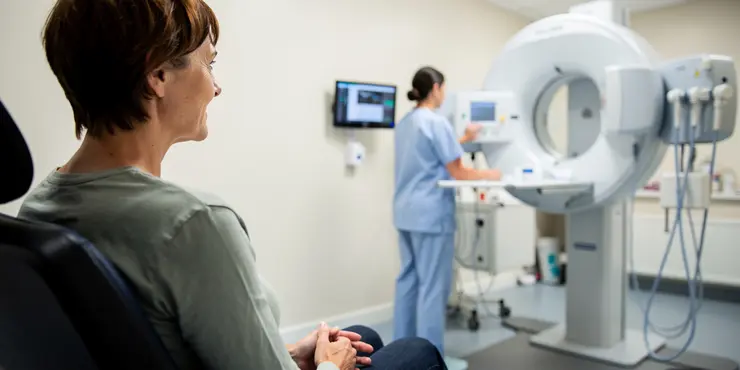
Radiotherapy to the Head and Neck: A Guide for patients and their carers
Relevance: 79%
-
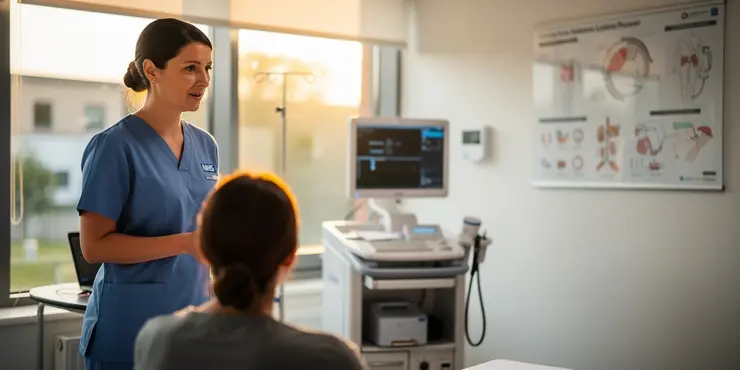
Radiotherapy Services at University Hospital
Relevance: 79%
-
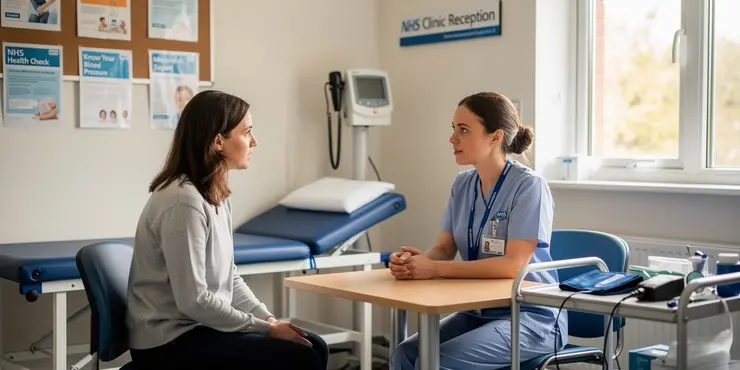
A Radiotherapy appointment in east and North Hertfordshire
Relevance: 73%
-
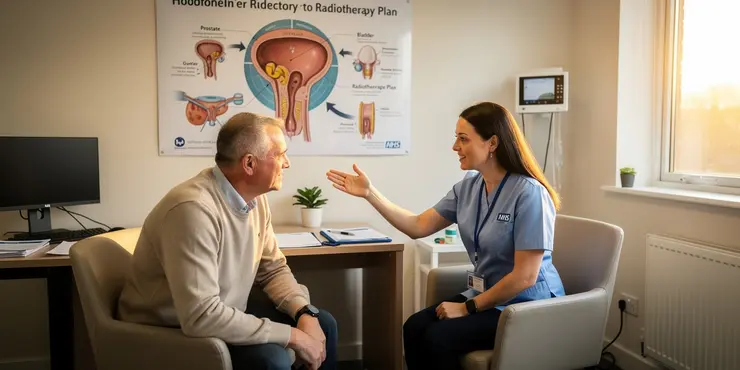
What is it like having Prostate Radiotherapy treatment?
Relevance: 73%
-

Vulval Cancer
Relevance: 53%
-
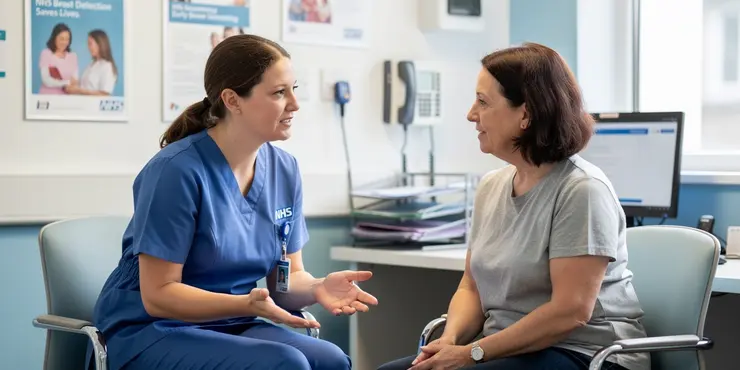
Breast cancer: testing and treatment | NHS
Relevance: 52%
-

How is prostate cancer treated?
Relevance: 50%
-
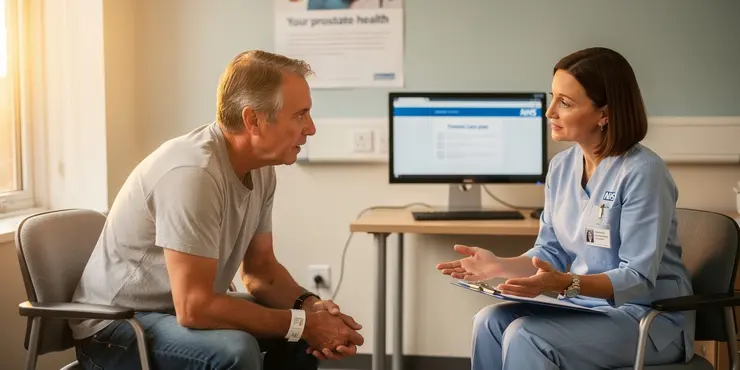
Treating prostate cancer
Relevance: 50%
-
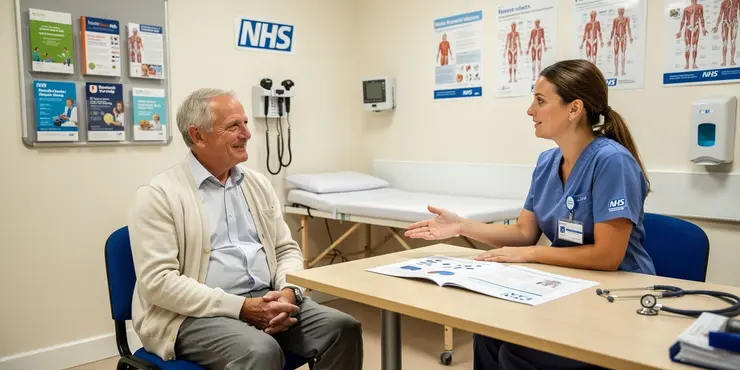
How is advanced prostate cancer treated?
Relevance: 47%
-
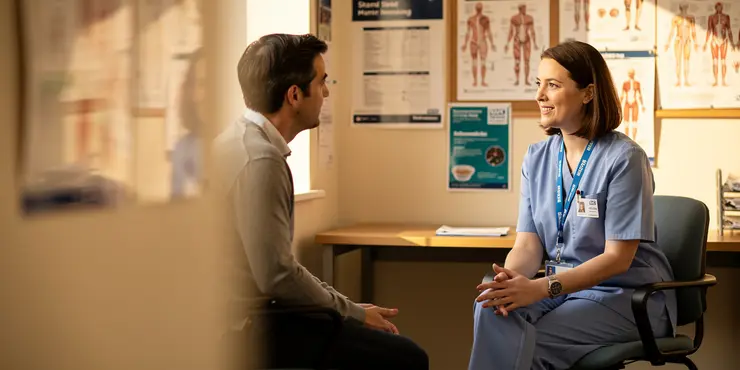
What treatment options are available for bowel cancer?
Relevance: 46%
-
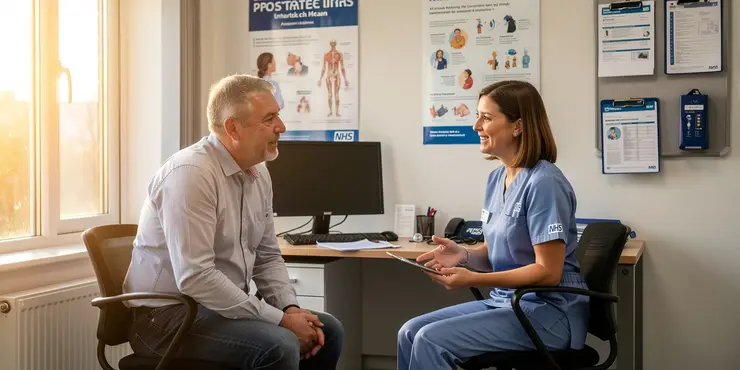
Can Abiraterone be used for early-stage prostate cancer?
Relevance: 46%
-
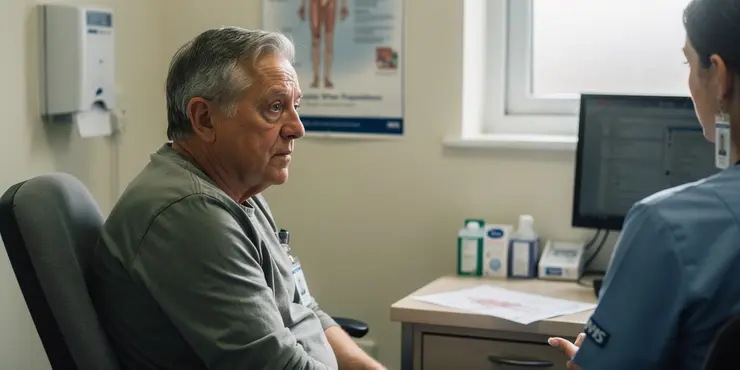
Hormone Therapy for prostate cancer
Relevance: 46%
-
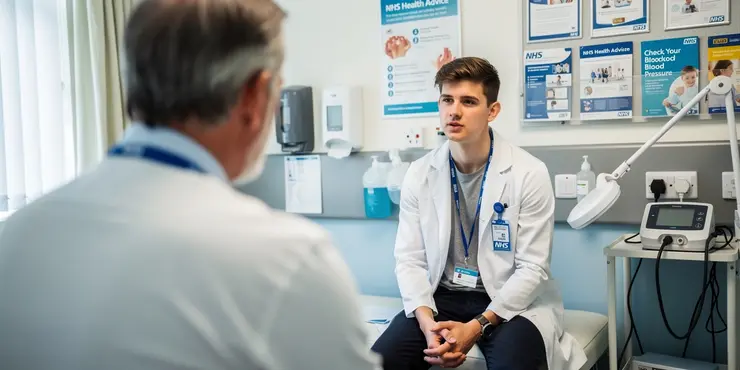
What is testicular cancer?
Relevance: 46%
-
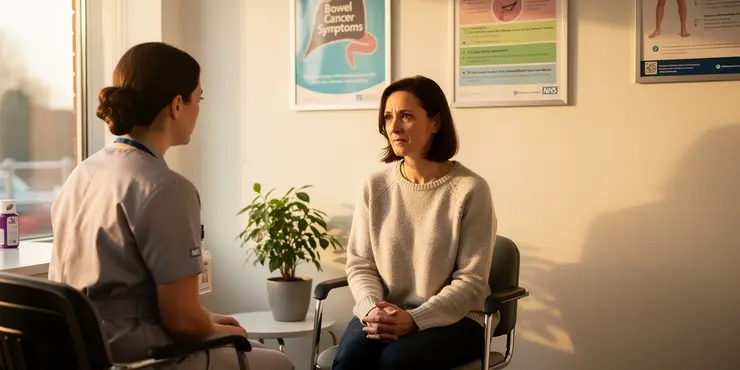
What is Bowel Cancer?
Relevance: 45%
-
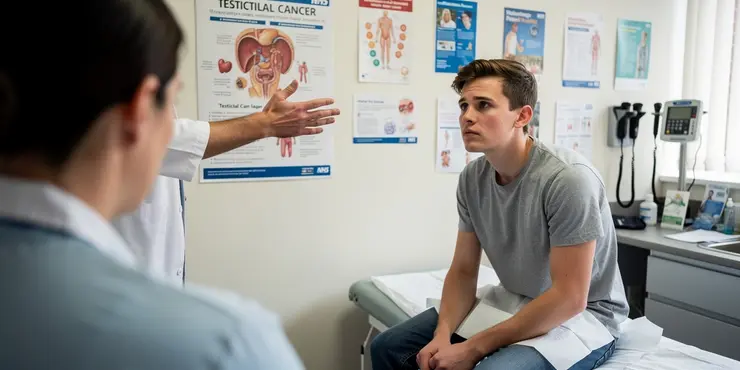
What is testicular cancer?
Relevance: 45%
-
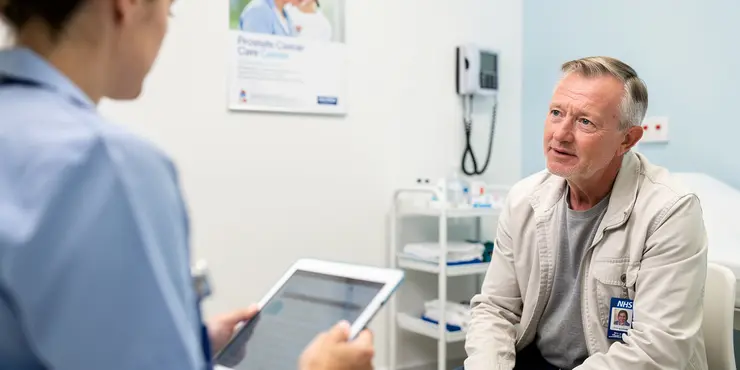
What is active surveillance in prostate cancer treatment?
Relevance: 44%
-

What are the side effects of bowel cancer treatment?
Relevance: 44%
-
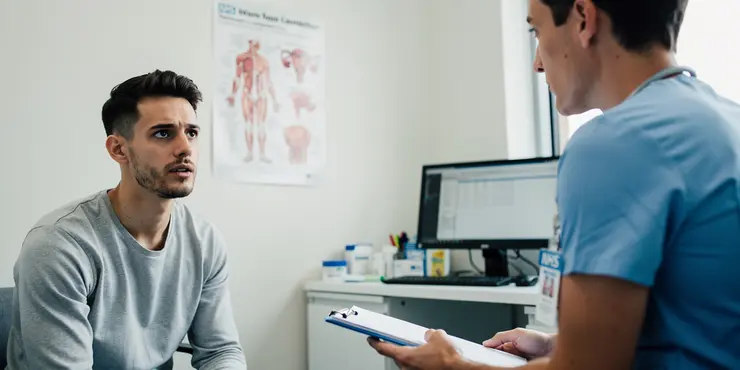
Is fertility affected by testicular cancer?
Relevance: 43%
-
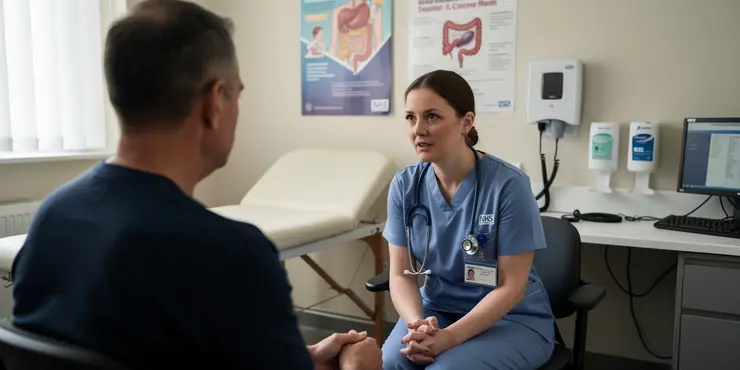
What is the survival rate for bowel cancer?
Relevance: 43%
-

Learn about bowel cancer (British Sign Language version)
Relevance: 42%
-
What is the role of immunotherapy in prostate cancer treatment?
Relevance: 42%
-
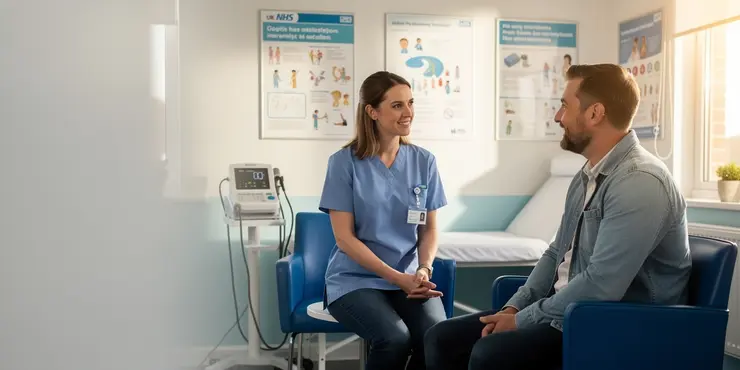
Are there clinical trials available for prostate cancer treatment?
Relevance: 40%
-

Raising awareness of ovarian cancer
Relevance: 40%
-

What support is available for individuals diagnosed with bowel cancer?
Relevance: 40%
-
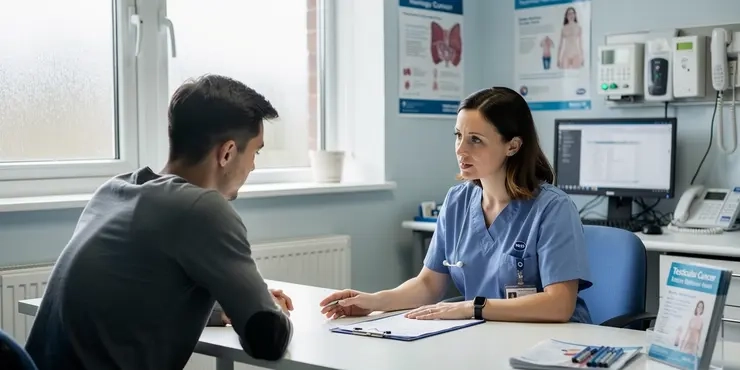
What role do tumor markers play in testicular cancer?
Relevance: 39%
-

Where can I find online resources for prostate cancer treatments on the NHS?
Relevance: 39%
-

How can AI improve patient outcomes in lung cancer?
Relevance: 39%
-

What is Cancer?
Relevance: 39%
-
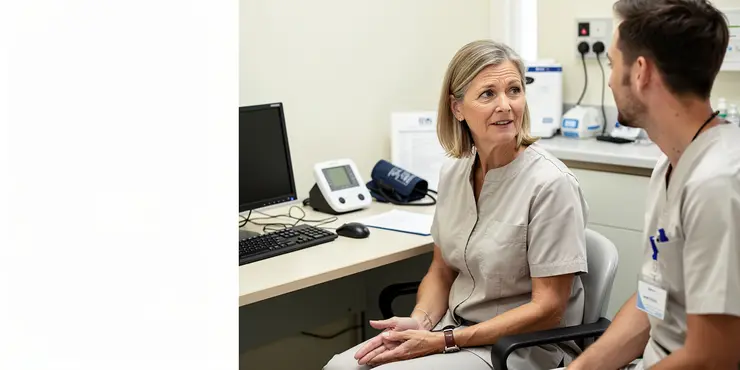
Ovarian Cancer
Relevance: 39%
-
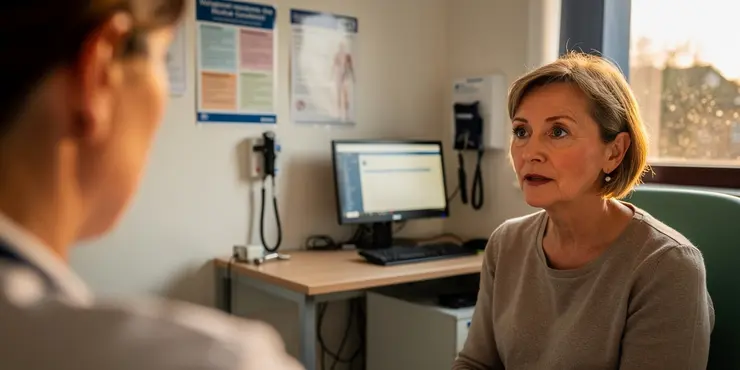
Vaginal Cancer
Relevance: 39%
-

Endometrial Cancer
Relevance: 39%
-
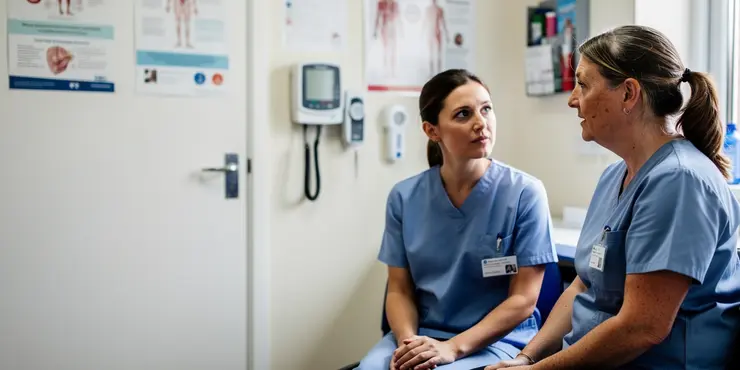
Endometrial Cancer
Relevance: 39%
-
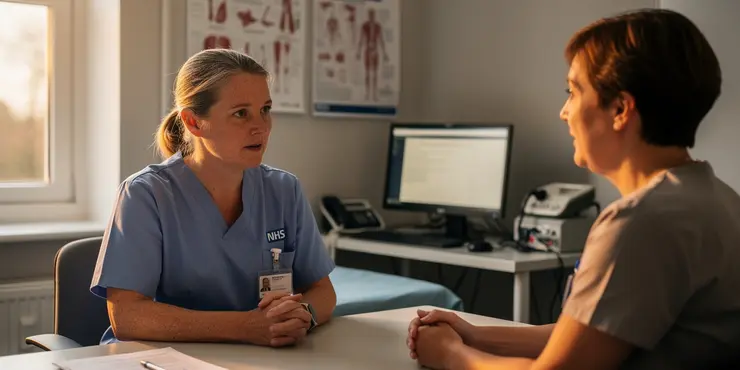
Endometrial Cancer
Relevance: 39%
-

What is the difference between colon cancer and rectal cancer?
Relevance: 38%
During a radiotherapy session, a patient undergoes a carefully orchestrated medical procedure aimed at targeting and treating cancerous tumors using high-energy radiation. The process typically involves several key steps:
- Treatment Planning: Before the session begins, a comprehensive treatment plan is developed by a team of healthcare professionals, including radiation oncologists and medical physicists. This plan outlines the specific dose of radiation, the angles from which the radiation beams will be delivered, and the duration of the treatment course. Advanced computer software is used to precisely calculate these parameters, ensuring that the radiation is focused on the tumor while sparing nearby healthy tissues.
- Patient Setup: Once the treatment plan is established, the patient is positioned on a treatment table, often using immobilization devices to maintain a consistent position throughout each session. Aligning the patient accurately with the planned treatment field is critical to the success of radiotherapy.
- Radiation Delivery: During the actual session, the patient is typically alone in the treatment room. Highly specialized machines, such as linear accelerators, deliver the prescribed radiation beams to the targeted area. The patient is carefully monitored remotely by radiation therapists and medical staff through closed-circuit cameras and intercoms.
- Treatment Duration: The duration of a radiotherapy session varies depending on the type of cancer, the treatment technique, and the prescribed dose. Some sessions may take only a few minutes, while others may require longer exposure times. Patients usually receive multiple sessions over several weeks, following the treatment plan.
- Minimal Discomfort: Radiotherapy itself is generally painless. Patients might hear the machine moving or buzzing during the session, but they should not feel the radiation. It's essential to remain still and follow the therapist's instructions for proper positioning.
- Side Effects: Radiotherapy can cause side effects, which vary depending on the treated area. Common side effects include fatigue, skin irritation, and localized discomfort. These side effects are closely monitored and managed by the medical team, and they usually improve after the completion of treatment.
- Post-Treatment Evaluation: After completing the prescribed sessions, patients may undergo follow-up evaluations, including imaging and clinical assessments, to assess the treatment's effectiveness and monitor for any potential long-term effects.
In summary, a radiotherapy session is a meticulously planned and precisely executed medical procedure aimed at treating cancer by delivering targeted radiation while minimizing damage to healthy tissues. The process requires a collaborative effort among healthcare professionals to ensure the best possible outcome for the patient.
Cancer Treatment: What Happens During Radiotherapy? | NHS
Introduction to Radiotherapy
Radiotherapy is a treatment option used to destroy cancer cells with high-energy radiation. It aims to target and kill cancer cells while minimizing damage to surrounding healthy tissues. This form of treatment can be used alone or in conjunction with other treatments such as surgery, chemotherapy, or hormone therapy to enhance efficacy.Types of Radiotherapy
There are two main types of radiotherapy: external beam radiotherapy and internal radiotherapy. External beam radiotherapy is the most common, where a machine directs radiation beams at the cancer. Internal radiotherapy involves placing radioactive material inside the body, either directly into or near the tumor.Preparation for Radiotherapy
Before starting treatment, you'll have a planning session known as a simulation. During this session, a radiotherapy team will use imaging scans such as CT or MRI to pinpoint the exact location of the tumor. This helps in creating a customized treatment plan, ensuring the radiation targets the cancer cells precisely while sparing as much healthy tissue as possible. Skin markings or tiny tattoos may be used to guide the radiotherapy accurately.During Radiotherapy Sessions
External radiotherapy treatments are typically given on an outpatient basis. Each session lasts about 10-30 minutes, although the actual time you spend receiving radiation is usually only a few minutes. You will lie on a treatment table, and the radiographer will position you and the machine correctly. It's crucial to stay very still during the treatment to ensure precision. The radiographer will then leave the room but will monitor you via CCTV and can communicate with you through an intercom.Side Effects of Radiotherapy
While radiotherapy aims to minimize damage to healthy cells, some side effects are inevitable. Common side effects include skin irritation in the treated area, fatigue, and hair loss in the targeted region. More specific side effects may depend on the part of the body being treated. For example, radiotherapy to the abdomen might cause nausea, while treatment to the head could result in headaches. These side effects can vary from person to person and will often improve a few weeks after treatment ends.Follow-Up Care
After completing radiotherapy, regular follow-up appointments will be scheduled to monitor your progress and manage any ongoing side effects. Your healthcare team will use these appointments to check your recovery, provide support, and address any concerns you may have.Conclusion
Radiotherapy is a vital component of cancer treatment, offering a highly targeted approach to destroy cancer cells. The NHS provides comprehensive support throughout radiotherapy, from initial planning to follow-up care. Understanding what to expect can help ease worries and prepare you for the journey toward recovery.During a radiotherapy session, a patient goes through a special medical process to treat cancer. It uses strong energy beams called radiation. Here is how it works:
- Treatment Planning: Before the session starts, doctors and other medical experts make a treatment plan. They decide how much radiation to use and from which angles to aim it. Computers help make sure the radiation hits the tumor and not the healthy parts of the body.
- Patient Setup: The patient lies on a treatment table. They might use special tools to stay still. It is important to be in the exact right position.
- Radiation Delivery: During the session, the patient is in the room by themselves. Big machines send the radiation to the cancer spot. Doctors watch the patient on cameras and talk to them through speakers.
- Treatment Duration: Sessions can be short or long, depending on the cancer type. Patients usually need to come for several sessions over a few weeks.
- Minimal Discomfort: Radiotherapy does not hurt. Patients might hear the machine making noises, but they should not feel the beams. Staying still is important.
- Side Effects: Radiotherapy can cause tiredness, skin that feels sore, or other mild aches. Doctors watch these closely and help make them better. Side effects often go away after treatment.
- Post-Treatment Evaluation: After all sessions, doctors check to see how well the treatment worked. They might do scans and other tests.
To sum up, a radiotherapy session is a well-planned medical task to treat cancer. It uses radiation carefully to help the patient. The medical team works together to get the best results.
Cancer Treatment: What Happens During Radiotherapy? | NHS
Introduction to Radiotherapy
Radiotherapy is a way to treat cancer. It uses strong rays to kill cancer cells. The goal is to destroy cancer cells and not harm healthy parts of the body. Radiotherapy can be used by itself or with other treatments like surgery or medicine.Types of Radiotherapy
There are two types of radiotherapy: 1. External radiotherapy: A big machine sends rays to the cancer from outside the body. 2. Internal radiotherapy: It puts radioactive material inside your body near the cancer.Preparation for Radiotherapy
Before treatment starts, you'll have a planning meeting. Doctors will use special scans to see where the cancer is. This helps them to aim the radiotherapy at the right spot. Sometimes, they put tiny marks on your skin to help guide the treatment.During Radiotherapy Sessions
External radiotherapy is usually done without staying in the hospital. Each visit takes about 10-30 minutes, but the treatment part is much shorter. You will lie down on a table, and the radiographer will position you and the machine. You must stay very still. The radiographer will leave the room but can see and talk to you.Side Effects of Radiotherapy
Radiotherapy can cause some side effects. Common ones are: - Skin feeling sore in the area treated - Feeling very tired - Hair loss where treated Other side effects depend on where the radiotherapy is given, like feeling sick if the stomach is treated or headaches if the head is treated. Most side effects get better a few weeks after treatment stops.Follow-Up Care
After finishing radiotherapy, you will have check-ups. The healthcare team will see how you are doing and help with any problems. They will make sure you are getting better.Conclusion
Radiotherapy is important for fighting cancer. It targets cancer cells specifically. The NHS will support you from the start of your radiotherapy to the end. Knowing what happens can help you feel better prepared.Frequently Asked Questions
What is radiotherapy?
Radiotherapy is a cancer treatment that uses high doses of radiation to kill cancer cells and shrink tumors.
How is radiotherapy administered?
Radiotherapy can be administered externally using a machine outside the body, or internally through radioactive material placed inside the body near cancer cells.
How long does a radiotherapy session take?
Each radiotherapy session typically lasts between 10 to 30 minutes, but the actual time the machine is on may only be a few minutes.
Do I need to prepare for radiotherapy?
Preparation depends on the type of radiotherapy. For external treatment, you'll lie still on a treatment table, and you may need to follow specific dietary or hygiene advice.
Will I feel any pain during radiotherapy?
Radiotherapy itself is painless, but lying still during the procedure might cause discomfort for some. Side effects, which can be painful, might develop after treatment.
How many radiotherapy sessions will I need?
The number of sessions depends on the type and stage of the cancer, typically ranging from daily sessions over a few weeks to a single treatment.
What are the side effects of radiotherapy?
Common side effects include skin reactions, fatigue, and changes to the treated area. These can vary based on the site being treated.
Will radiotherapy make me radioactive?
External radiotherapy will not make you radioactive. Internal radiotherapy might require special precautions for a short time.
Can I continue my normal activities during radiotherapy?
Many people can continue with their daily activities, but it's important to listen to your body and rest when needed as fatigue is a common side effect.
What should I do if I experience side effects?
Report any side effects to your radiotherapy team. They can provide treatments or advice to help manage symptoms.
Is radiotherapy used alone to treat cancer?
Radiotherapy can be used alone, but it's often combined with other treatments such as surgery, chemotherapy, or immunotherapy.
Can I eat and drink normally during radiotherapy?
You may need to follow specific dietary guidelines depending on the area being treated. Always consult with your radiotherapy team for personalized advice.
Will I lose my hair during radiotherapy?
Hair loss can occur, but only in the area being treated. For example, radiotherapy to the head may cause scalp hair loss.
Can radiotherapy affect fertility?
Fertility can be affected if reproductive organs are in the treatment area. Discuss fertility preservation options with your doctor beforehand.
How will I know if radiotherapy is working?
The effectiveness of the treatment will be monitored through regular follow-up appointments and imaging tests.
What is radiotherapy?
Radiotherapy is a treatment for cancer. It uses special X-rays to kill cancer cells.
Doctors use big machines to do this. It does not hurt when you have radiotherapy.
You might feel tired after. It is important to rest and drink water.
If you have questions, talk to your doctor or nurse. They will help you understand.
Using a calendar can help you remember your appointments.
Radiotherapy is a way to treat cancer. It uses strong rays to kill cancer cells and make the lumps smaller.
How do you get radiotherapy treatment?
Radiotherapy is when strong rays help fight cancer. A special machine sends these rays to the part of your body where you have cancer. You don’t feel anything during it. It is a bit like having an X-ray.
If you find reading hard, try asking someone to read it out loud to you or use a tool that can read the text for you. You can also look at pictures or videos that show how radiotherapy works. These can help you understand better.
Radiotherapy is a treatment that uses strong rays to kill cancer.
There are two ways to get radiotherapy:
1. A big machine outside your body can send rays to the cancer.
2. Tiny bits of radioactive stuff can be put inside your body close to the cancer.
If you find reading hard, you can ask someone to read it for you. You can also use tools like audiobooks or text-to-speech apps to listen to the words.
How long is a radiotherapy session?
Radiotherapy is a treatment to help fight cancer. A session usually takes about 10 to 30 minutes.
If you find it hard to read, you can ask someone you trust to help you. You can also use audiobooks or reading apps to assist you.
Each time you have radiotherapy, it usually takes about 10 to 30 minutes. But the machine is only on for a few minutes.
How can I get ready for radiotherapy?
How you get ready depends on the kind of radiotherapy you have. For treatment outside your body, you will lie very still on a table. You might also have to eat certain foods or keep clean in a special way before the treatment.
Will it hurt when I have radiotherapy?
When you get radiotherapy, you should not feel pain. It is like getting an X-ray.
If you feel any pain, tell your doctor or nurse. They can help you feel better.
Remember to talk to your support team. They can help you understand and feel less worried.
Radiotherapy does not hurt. But staying still during treatment might be uncomfortable for some people. After treatment, you might get some side effects that can hurt.
How many times will I need radiotherapy?
Radiotherapy is a treatment to help you feel better. Doctors use it to treat cancer.
Most people need to go to radiotherapy more than once.
Ask your doctor how many times you need to go.
Your doctor will tell you what is best for you.
It is okay to ask questions if you do not understand.
You might find it helpful to bring a friend or family member to help you remember what the doctor says.
The number of times you need to go for treatment depends on the kind of cancer you have and how bad it is. You might need to go every day for a few weeks, or maybe just once.
What can happen when you have radiotherapy?
Radiotherapy is a treatment for cancer. Sometimes, it can make you feel different. Here are some things that can happen:
- You might feel very tired.
- Your skin might get red, dry, or sore where you have the treatment.
- You might feel sick to your tummy.
- You might lose your hair in the place where you have the treatment.
- You might have a sore mouth or throat.
These things can feel different for everyone. It is important to talk to your doctor or nurse. They can help you feel better.
Using pictures or having someone read it to you can also help understand more about radiotherapy.
Some common side effects are skin problems, feeling very tired, and changes to the area being treated. These can be different depending on where the treatment is happening.
Can radiotherapy make me glow like a light?
No, radiotherapy will not make you glow or become radioactive. It is safe for you and others around you.
If you have more questions, you can ask your doctor or nurse to help you understand. You can also draw pictures to help explain it or use videos that show how it works.
External radiotherapy will not make you radioactive. Internal radiotherapy might need special safety steps for a short time.
Can I keep doing my usual things during radiotherapy?
A lot of people can keep doing their daily things. But it is important to pay attention to your body. Take a break when you feel tired. Feeling tired is normal.
What if I feel unwell after taking medicine?
If you feel unwell or funny after taking medicine, tell someone you trust. This could be a family member, friend, or doctor.
You can also write down how you feel. This can help you remember what to tell the doctor.
If you feel very sick, it is important to get help quickly. Ask someone to call a doctor or go to the hospital with you.
Remember, it is okay to ask for help when you do not feel well after taking medicine.
Tell your radiotherapy team if you feel unwell. They can help make you feel better.
Can radiotherapy by itself help get rid of cancer?
Radiotherapy is a strong way to fight cancer. It uses special rays to kill bad cancer cells.
Sometimes, doctors only use radiotherapy to treat cancer. But often, they use it with other treatments.
Other treatments could be medicine, surgery, or chemotherapy.
If you're not sure about how radiotherapy works, it's a good idea to ask your doctor.
You can also use tools like pictures or videos to understand better.
Radiotherapy is a type of cancer treatment. It can be used by itself. But sometimes, we use it with other treatments. These other treatments can include surgery, chemotherapy, or immunotherapy.
If you need help understanding, you can try these things:
- Ask someone to read it with you.
- Use a computer program to read it out loud.
- Take your time and read slowly.
Can I eat and drink like usual during radiotherapy?
Yes, you can usually eat and drink like normal during radiotherapy. Sometimes, you might need to change what you eat if you don’t feel well. If you have trouble eating, talk to your doctor or nurse.
Here are some tips to help you:
- Eat small meals often.
- Drink lots of water.
- Try eating soft foods if chewing is hard.
- Ask your doctor for more advice.
You might need to eat certain foods because of your treatment. Always talk to your radiotherapy team to get advice just for you.
Will I lose my hair during radiotherapy?
Radiotherapy is a treatment for cancer.
It uses strong rays to help make you better.
You might lose your hair where the rays are pointed.
If the rays are on your head, your hair might fall out.
If the rays are on your arm, your arm hair might fall out.
Your hair might grow back after treatment.
Talk to your doctor or nurse if you are worried.
They can give you tips to help.
Your hair might fall out, but only where you are getting the treatment. For example, if you get treatment on your head, your hair might fall out there.
Here are some things to help you:
- Use a soft brush to take care of your hair.
- Wear a hat or scarf to protect your head.
- Talk to someone if you feel upset about losing hair.
Can radiotherapy change if you can have children?
Radiotherapy is a treatment for some illnesses that uses strong rays.
If you have radiotherapy, it might make it harder to have children later.
If you are worried about this, talk to your doctor. They can help and tell you more.
Bring a friend or family member with you to the appointment. They can listen and help remember things.
If the treatment area is near the parts of the body that help make babies, it can affect having children. Talk to your doctor about ways to save your ability to have kids before you start treatment.
How can I tell if radiotherapy is helping?
Doctors will check if the treatment is working. They will do this by having regular check-up visits and taking pictures inside your body.
Useful Links
This website offers general information and is not a substitute for professional advice.
Always seek guidance from qualified professionals.
If you have any medical concerns or need urgent help, contact a healthcare professional or emergency services immediately.
Some of this content was generated with AI assistance. We’ve done our best to keep it accurate, helpful, and human-friendly.
- Ergsy carfully checks the information in the videos we provide here.
- Videos shown by Youtube after a video has completed, have NOT been reviewed by ERGSY.
- To view, click the arrow in centre of video.
- Most of the videos you find here will have subtitles and/or closed captions available.
- You may need to turn these on, and choose your preferred language.
- Go to the video you'd like to watch.
- If closed captions (CC) are available, settings will be visible on the bottom right of the video player.
- To turn on Captions, click settings .
- To turn off Captions, click settings again.
More Items From Ergsy search
-

Having radiotherapy for breast cancer - 3 Videos
Relevance: 100%
-

What is Radiotherapy, and its use in treatment for cancers?
Relevance: 97%
-

Royal Berkshire NHS Foundation Trust: Radiotherapy for prostate cancer
Relevance: 92%
-

Cancer treatment: what happens during radiotherapy? | NHS
Relevance: 92%
-

Royal Berkshire NHS Foundation Trust: Radiotherapy for head and neck cancers
Relevance: 87%
-

Radiotherapy CT scanner
Relevance: 80%
-

Radiotherapy to the Head and Neck: A Guide for patients and their carers
Relevance: 79%
-

Radiotherapy Services at University Hospital
Relevance: 79%
-

A Radiotherapy appointment in east and North Hertfordshire
Relevance: 73%
-

What is it like having Prostate Radiotherapy treatment?
Relevance: 73%
-

Vulval Cancer
Relevance: 53%
-

Breast cancer: testing and treatment | NHS
Relevance: 52%
-

How is prostate cancer treated?
Relevance: 50%
-

Treating prostate cancer
Relevance: 50%
-

How is advanced prostate cancer treated?
Relevance: 47%
-

What treatment options are available for bowel cancer?
Relevance: 46%
-

Can Abiraterone be used for early-stage prostate cancer?
Relevance: 46%
-

Hormone Therapy for prostate cancer
Relevance: 46%
-

What is testicular cancer?
Relevance: 46%
-

What is Bowel Cancer?
Relevance: 45%
-

What is testicular cancer?
Relevance: 45%
-

What is active surveillance in prostate cancer treatment?
Relevance: 44%
-

What are the side effects of bowel cancer treatment?
Relevance: 44%
-

Is fertility affected by testicular cancer?
Relevance: 43%
-

What is the survival rate for bowel cancer?
Relevance: 43%
-

Learn about bowel cancer (British Sign Language version)
Relevance: 42%
-
What is the role of immunotherapy in prostate cancer treatment?
Relevance: 42%
-

Are there clinical trials available for prostate cancer treatment?
Relevance: 40%
-

Raising awareness of ovarian cancer
Relevance: 40%
-

What support is available for individuals diagnosed with bowel cancer?
Relevance: 40%
-

What role do tumor markers play in testicular cancer?
Relevance: 39%
-

Where can I find online resources for prostate cancer treatments on the NHS?
Relevance: 39%
-

How can AI improve patient outcomes in lung cancer?
Relevance: 39%
-

What is Cancer?
Relevance: 39%
-

Ovarian Cancer
Relevance: 39%
-

Vaginal Cancer
Relevance: 39%
-

Endometrial Cancer
Relevance: 39%
-

Endometrial Cancer
Relevance: 39%
-

Endometrial Cancer
Relevance: 39%
-

What is the difference between colon cancer and rectal cancer?
Relevance: 38%


